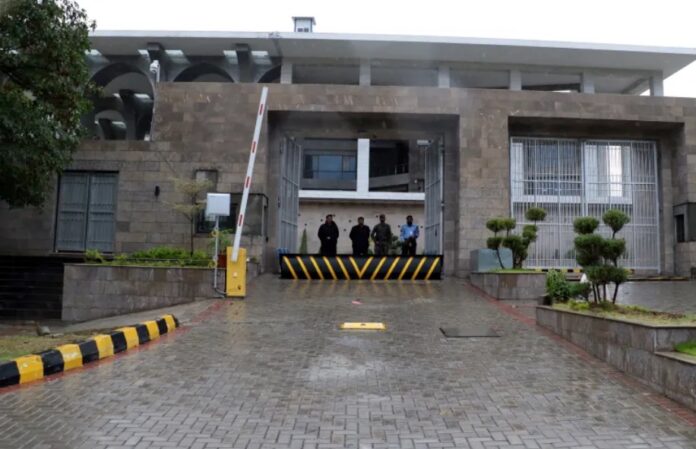ISLAMABAD, Pakistan – Six senior judges of Islamabad High Court(IHC) have lodged accusations against the nation’s influential intelligence agency, alleging interference in judicial affairs and employing intimidation tactics, including clandestine surveillance and even the abduction and torture of their family members.
The accusations, dated March 25 but revealed on the following Tuesday evening, were made by judges from the Islamabad High Court (IHC). They have requested the Supreme Judicial Council (SJC) to probe their allegations against individuals linked to the Inter-Services Intelligence (ISI), the primary intelligence agency of the Pakistani military. The SJC, which is the nation’s judicial watchdog, consists of the chief justice of Pakistan and four other senior judges—two from the Supreme Court and two from High Courts.
“We believe it is imperative to inquire into and determine whether there exists a continuing policy on part of the executive branch of the state, implemented by intelligence operatives who report to the executive branch, to intimidate judges, under threat of coercion or blackmail, to engineer judicial outcomes in politically consequential matters,” said the letter.
On Wednesday, the Chief Justice of Pakistan Qazi Faez Isa called the entire panel of 15 Supreme Court judges for a meeting to discus the letter.
The ISI and Pakistan’s military have not responded to the letter yet. Neither Pakistan’s law ministry nor the military’s media wing responded to queries by Al Jazeera, seeking their responses to the allegations in the letter.
The cases of alleged intimidation and coercion by the judges in “politically consequential” cases relate to those against the main opposition leader and jailed former Prime Minister Imran Khan.
Khan’s Pakistan Tehreek-e-Insaf (PTI) has accused the military of orchestrating a crackdown on the party in the run-up to last month’s general elections. The crackdown saw Khan jailed and barred from contesting, dozens of other PTI leaders leaving the party after their arrest, and the party losing its election symbol, forcing its candidates to contest the vote as independents.
Pakistan’s military has repeatedly denied allegations that it interfered in the election.
More than 100 cases against Khan were brought before the IHC, with the six signatory judges saying “considerable pressure was brought to bear” on them by the spy agency. The letter says a judge’s brother-in-law was abducted by “individuals who claimed to be operatives of the ISI” and “tortured into making false allegations”. Another judge said he found secret cameras in his living room and bedroom.
“We, therefore, request that a judicial convention be called to consider the matter of interference of intelligence operatives with judicial functions and/or intimidation of judges in a manner that undermines the independence of the judiciary,” said their letter.
Over 100 cases against Khan were presented to the IHC, with the six judges who signed the letter stating that they were subjected to “significant pressure” by the intelligence agency. The letter reveals that a judge’s brother-in-law was kidnapped by “individuals purporting to be ISI operatives” and was “tortured into making false accusations”. Another judge discovered hidden cameras in his living room and bedroom.
The judges, therefore, called for a judicial convention to address the issue of intelligence operatives interfering with judicial functions and/or intimidating judges in a way that compromises the independence of the judiciary.
The judges’ letter was released less than a week after the Supreme Court declared the 2018 dismissal of former IHC judge Shaukat Aziz Siddiqui as unlawful. In a public address that year, Siddiqui accused the then-ISI chief and other military officials of manipulating judicial decisions and meddling in cases. Siddiqui’s claims were related to corruption cases against Nawaz Sharif, the former prime minister. The SJC initiated a misconduct proceeding against the judge and recommended his removal from the position.
Siddiqui contested the SJC’s decision in the Supreme Court, which only began hearing the case last year. In its ruling last week, the Supreme Court found the SJC’s recommendation to be flawed and reinstated Siddiqui’s status as a retired judge.
The judges’ letter also referenced the Siddiqui case, calling for an investigation into the allegations made against the former ISI chief and other military officials.




